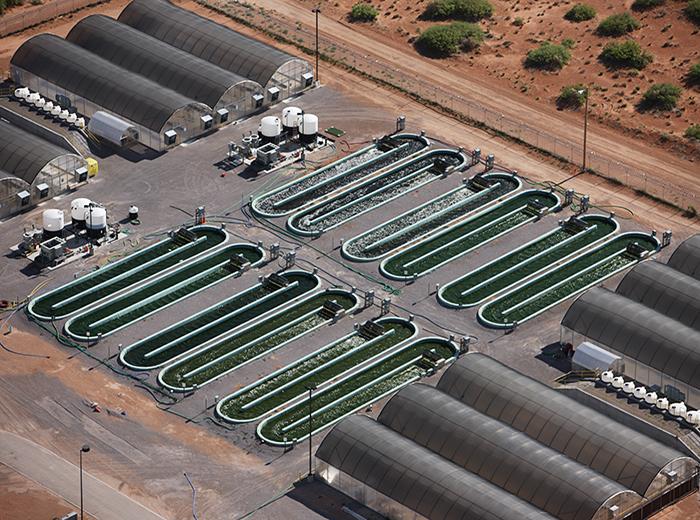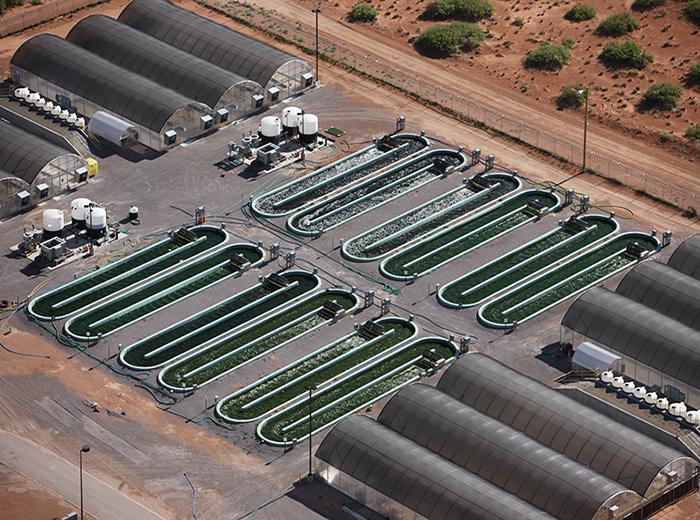
Credit: Sapphire Energy INC
LOS ALAMOS, N.M., July 12, 2017 — Today, the U.S. Department of Energy (DOE) announced the selection of three projects to receive up to $8 million, aimed at reducing the costs of producing algal biofuels and bioproducts. One of the projects involves Los Alamos National Laboratory scientist Shawn Starkenburg working with Alina Corcoran of Sapphire Energy at its Las Cruces, New Mexico field site, evaluating rationally designed pond cultures containing multiple species of algae, as well as beneficial bacteria, for consistent biomass composition and high productivity. The project was awarded through a DOE Funding Opportunity Announcement titled "Productivity Enhanced Algae and Tool-Kits (PEAK)."
"Our goal is to double the yield of outdoor algal production systems," Starkenburg said. "By applying strategies and management practices from agriculture, aquaculture, microbial ecology, as well as using high-throughput selection tools to generate microbial assemblages, we believe this is achievable," he said.
Overall, these projects will deliver high impact tools and techniques for increasing the productivity of algae organisms and cultures to support the development of a bioeconomy that can help create jobs, spur innovation, improve quality of life, and achieve national energy security.
These projects will also deliver biology-focused breakthroughs while enabling accelerated future innovations through data sharing within the research and development community, Starkenburg said. Specifically, the tools and techniques that will be co-developed by Los Alamos and Sapphire include "cultivation ready" mixtures of algae, and libraries of bacteria that improve the growth of algae. In addition, the project will implement a novel high-throughput microfluidics screening/culturing method developed by Los Alamos to identify probiotic bacteria, and the team will sequence the genomes of novel production strains.
###
Los Alamos is involved with algae biofuels research as part of its energy security mission for the US Department of Energy. This work will be supported by the DOE Bioenergy Technologies Office (BETO).
About Los Alamos National Laboratory
Los Alamos National Laboratory, a multidisciplinary research institution engaged in strategic science on behalf of national security, is operated by Los Alamos National Security, LLC, a team composed of Bechtel National, the University of California, BWX Technologies, Inc. and URS Corporation for the Department of Energy's National Nuclear Security Administration.
Los Alamos enhances national security by ensuring the safety and reliability of the U.S. nuclear stockpile, developing technologies to reduce threats from weapons of mass destruction, and solving problems related to energy, environment, infrastructure, health and global security concerns.
Media Contact
Nancy Ambrosiano
[email protected]
505-667-0471
@LosAlamosNatLab
http://www.lanl.gov





